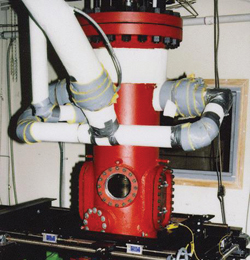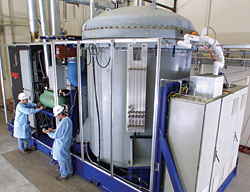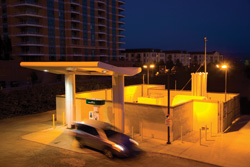Combustion Technology and Alternative Fuels
The UCI Combustion Laboratory (UCICL) is a leading research organization that is working to advance understanding and implications for the use of gaseous and liquid alternative fuels in combustion systems. The UCICL has developed a unique suite of capabilities that allow research at levels ranging from basic science to practical application. These include the capability to operate practical combustion systems, including small gas turbine engines, boilers, and appliances on simulated fuels that are expected to play an increasing role in our future power generation, industrial processes, and transportation needs. Supporting science comes from application of laser diagnostics to appropriate model combustion systems at pressures up to 15 atm with full inlet air preheat and detailed computational fluid dynamic and chemical kinetic modeling. Key characteristics such as ignition delay, flame speeds, pollutant formation chemistry, atomization and evaporation (in the case of liquid fuels) are needed to understand how these fuels may impact the environment and/or combustion systems that use them. The impacts can include changes in pollutant emissions, as well as operational issues such as flashback, changes in heat transfer, static and dynamic stability, and overall fuel systems and components.
The UCI Combustion Laboratory (UCICL) is a leading research organization that is working to advance understanding and implications for the use of gaseous and liquid alternative fuels in combustion systems. The UCICL has developed a unique suite of capabilities that allow research at levels ranging from basic science to practical application. These include the capability to operate practical combustion systems, including small gas turbine engines, boilers, and appliances on simulated fuels that are expected to play an increasing role in our future power generation, industrial processes, and transportation needs. Supporting science comes from application of laser diagnostics to appropriate model combustion systems at pressures up to 15 atm with full inlet air preheat and detailed computational fluid dynamic and chemical kinetic modeling. Key characteristics such as ignition delay, flame speeds, pollutant formation chemistry, atomization and evaporation (in the case of liquid fuels) are needed to understand how these fuels may impact the environment and/or combustion systems that use them. The impacts can include changes in pollutant emissions, as well as operational issues such as flashback, changes in heat transfer, static and dynamic stability, and overall fuel systems and components.


